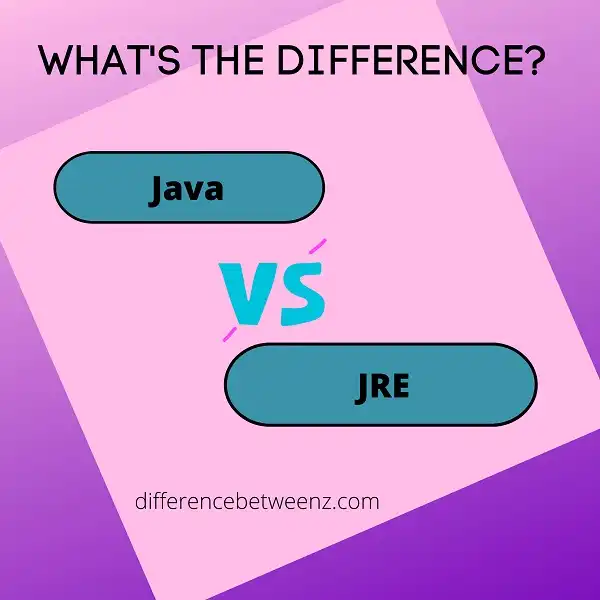If you’re a programmer, or even if you’re just getting started in programming, you’ve probably heard of Java. But what about JRE? What’s the difference between Java and JRE? In this blog post, we’ll take a look at the differences between Java and JRE, and we’ll also discuss why it’s important to know the difference. Stay tuned!
What is Java?
Java is a versatile and powerful programming language that enables developers to create robust, high-performance applications. Java is fast, reliable, and secure. It supports a wide range of platforms, including Windows, Mac, Linux, and Solaris. Java is used in a variety of settings, including web development, enterprise applications, mobile app development, and embedded systems. Java is an object-oriented language, which means that it uses objects and classes to model real-world problems. This makes Java code easy to understand and maintain. Java also has a rich set of libraries that provide ready-made solutions to common programming tasks.
What is JRE?
JRE, or the Java Runtime Environment, is a software platform that enables Java applications to run on your computer. JRE includes the Java Virtual Machine (JVM), which is the software that runs Java programs, as well as a set of libraries and other files that are needed by those programs. When you install JRE on your computer, you effectively create a JVM that can be used by any Java program. JRE is used by many different types of programs, including web browsers, server software, and standalone applications. JRE is also the foundation for the Java Platform, which allows developers to create more complex Java-based software.
Difference between Java and JRE
Java is a platform-independent, object-oriented programming language. Java programs are compiled into bytecode, which can be run on any Java Virtual Machine (JVM). In contrast, the Java Runtime Environment (JRE) is a platform-specific implementation of the JVM that runs Java programs. The JRE includes the Java class libraries, as well as the Java virtual machine. While the Java Development Kit (JDK) is required to write and compile Java programs, the JRE is all that is needed to run them. Thus, if you simply want to run Java programs, you only need to install the JRE. However, if you want to develop Java applications, you will need to install the JDK.
Conclusion
Java and JRE are both important for running applications on your computer. While they have some overlap in their functions, they serve different purposes. Make sure you have the right one installed so that you can run all the programs you need.


